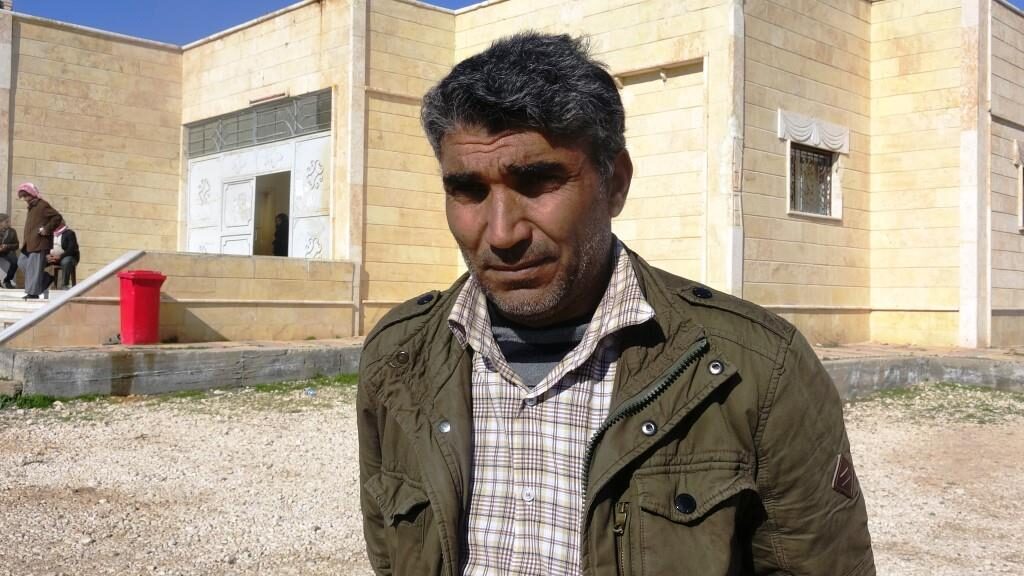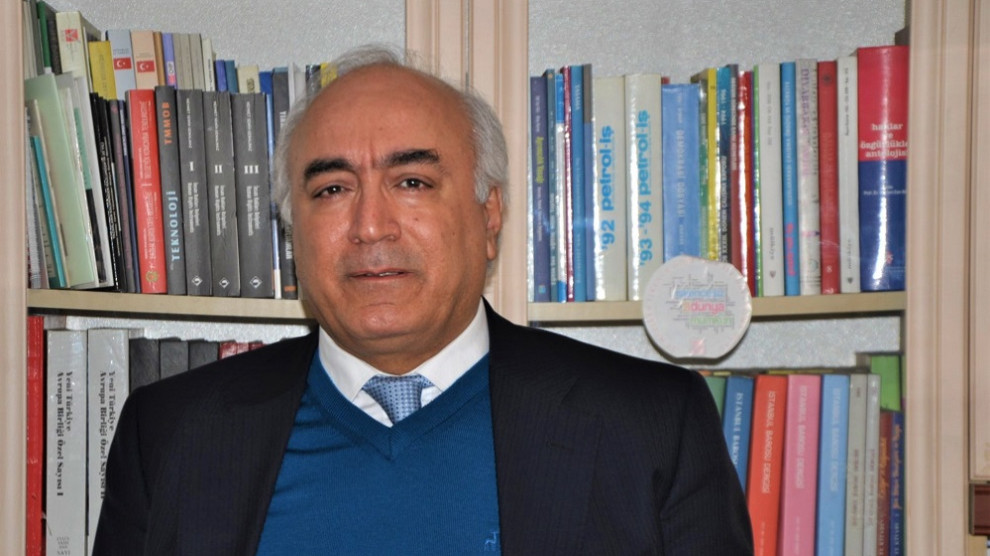
The story of the displaced from al-Taybeh village of Girê Spî / Tel Abyad canton Mahmoud Hami is similar to the stories of the thousands of displaced people who were deserted by the Turkish occupation after their occupation of their city and villages after the brutal attack launched in October 9th of this year.
The common factor among the stories of all the displaced is the forced migration at the hands of Turkey and the suffering followed that.
Mahmoud Hami who is currently residing in Ain Issa district said: “We got out of our homes after the Turkish indiscriminate bombing with all the weapons, and we can no longer return to them because the mercenaries are fabricating delusional accusations for everyone there to kidnap and confiscate their property.”
He pointed out that he realized through communicating with friends in the region that the Turkish occupation army had converted his 400-dunum land into a military barrack, and they installed concrete rooms and surrounded it with earthen berms.
He pointed out that his land is their only source of livelihood, as he used to cultivate it every year to secure the needs of his family, explaining that he had prepared it before being displaced from the village in preparation for cultivation.
Hami made clear that he is not the only one whose lands have been confiscated, as nearly 3 thousand hectares of his village confiscated, and the mercenaries planted them from the seeds that they stole from the civilian homes.
Speaking about the violations of Turkey and its mercenaries in the region, Mahmoud Hami added: “The mercenaries are behaving there as if they are the real owners of the land in light of the international community’s neglect of their violations. They stole all our belongings; tractors, engines, and wheat bags even the doors and windows of my house.”
He concluded his speech saying: “We appeal and demand the international community to move towards the continuation of our tragedy and the theft of our property by the Turkish occupation army and its mercenaries, and secure our return to our homes.”

